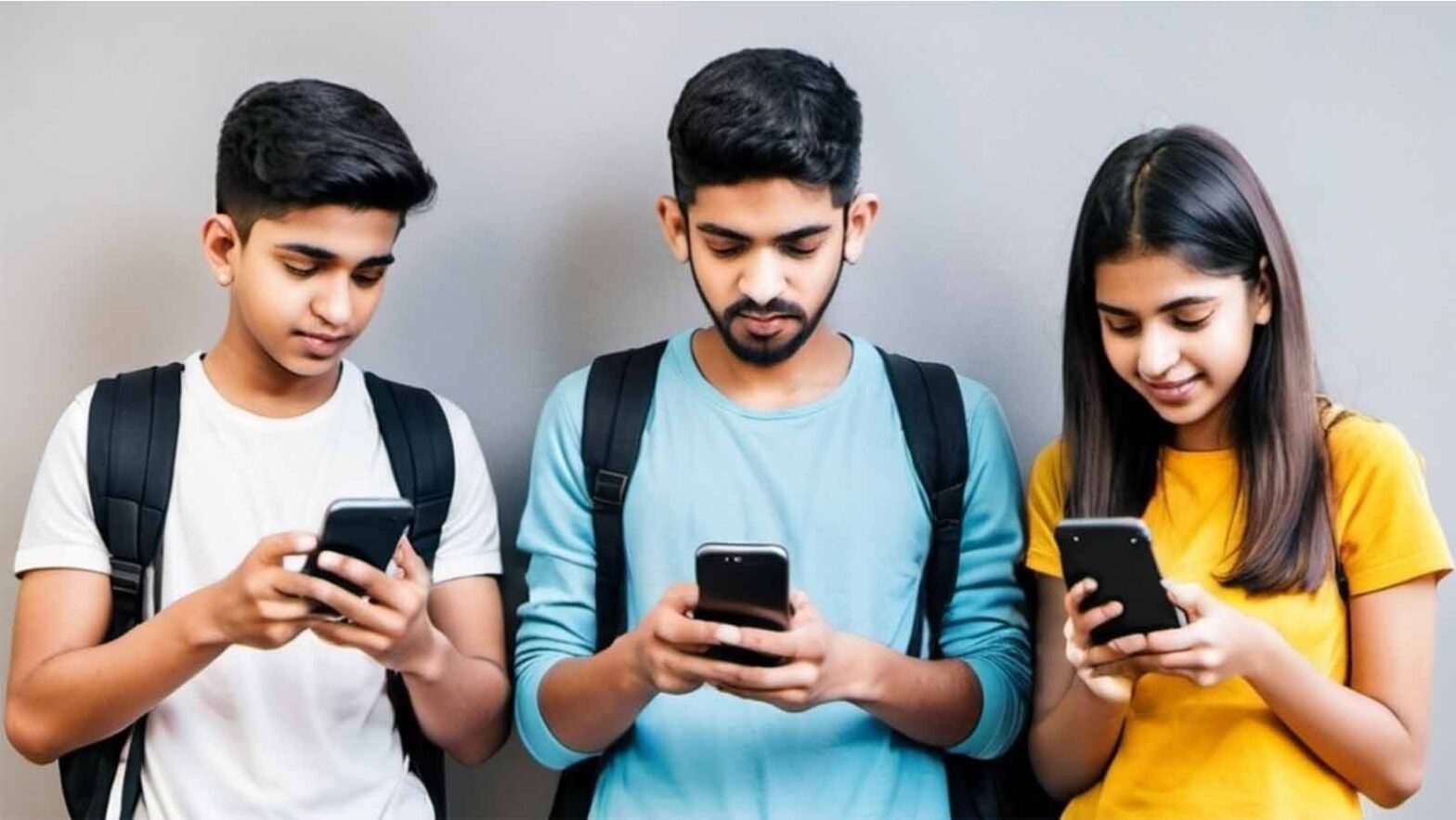
In part 1, I wrote about how Indian youth are delusional about the late-night lifestyle.
In this part, we are turning our magnifying glass to understand how Indian youth are delusional about social media.
Indian youth are just crazy about social media.
It’s hard for them to resist Instagram feeds, memes, or countless debates on X.
It’s hard for them to resist influencers and celebrities and their curated feeds.
And then, it’s hard for them to resist creating unique hashtags or following such hashtags so they can look cool.
You can see the craziness behind their love for hashtags on X.
Social media has both positive side and negative sides. But there is a fine line and the positive side can become the negative side if youth don’t understand how it can overpower them.
In this post, I’m focusing only on the negative side of social media and what are the delusions.
So to see if you are a delusional Indian youth or not, go through the following points:
The Perfect Illusion
Influencers, celebrities, and other users curate their social media smartly to look perfect.
So, Indian youth can become delusional if they believe in those picture-perfect shots or videos.
And Indian youth do become delusional when they try to copy influencers or celebrities.
Social media traps them with its perfect illusion.
Indian youth don’t realize that nobody posts their bad day moments or experiences. Nobody posts their struggles. Nobody posts their insecurities.
They believe in filtered photos, staged poses, and fake moments.
What Statistics Say?
According to a report by Royal Society for Public Health (RSPH) on young people, 70% of young people reported that they feel worse about their lives after spending time on social media.
When youth constantly expose themselves to the seemingly perfect lives and lifestyles of other people. They start having unrealistic expectations and their perception of reality is distorted.
The “Performance Pressure”
Indian youth not only view others’ posts but they also participate too.
The delusion happens when Indian youth have to perform better. They feel the pressure to post regularly.
If they don’t, they will not stay relevant.
If they do not participate in the social media game consistently, their stats suffer. To gain their previous better stats, Indian youth have to double down on their efforts.
Social media platforms have constructed their algorithms smartly so that you have no other option but to perform. Another problem that youth face due to performance pressure is “Fear of Missing Out (FOMO)”.
If you look around, you may notice that Indian youth make reactive purchases because of the delusion of FOMO.
And FOMO is often triggered due to what the youth see on social media.
Indian youth want to keep up with other people on social media. They want to look like people who are looking great online. They want to travel like people who are traveling great. They want to eat like people who are eating great.
So under the influence of their emotions, they purchase new gadgets, buy tickets for the latest events, spend on fast fashion clothes, or try the trendiest food.
These youth become delusional about the consequences of their reactive shopping and impulsive actions.
The Followers, Comments, and Likes Game
To understand this, let’s take an example:
Manya daily scrolls through her social media feed. She sees the posts of her friends and relatives.
So, she also feels pressure to post and share every aspect of her life. Hence, she starts posting her workouts, what she eats and wears, happy moments with friends, or hangouts.
She spends more time curating her online presence than actually enjoying those moments.
The delusion is she starts thinking that her worth is tied to the number of likes and followers she has.
So, today’s youth feel that their online followers really care for them when they comment on their posts.
But the reality is many followers just don’t care. If you stop following other users, they will stop following you. Many users on social media platforms behave selfishly.
The Influencer Lure
Many Indian youth dream of becoming influencers. They think that it is an easy way to gain fame and money.
However, they are delusional about the reality of social media.
Becoming an influencer is not that easy, like clicking a selfie or recording a movie clip and posting it, and thinking that this will get them many likes, comments, or followers. The reality is, that becoming an influencer requires a lot of effort and skills.
Moreover, it is not as glamorous as it seems. Many influencers have their share of struggles and pain. They don’t share the reality.
The Echo Chamber
Social media’s other delusion is “The Echo Chamber Effect”.
In simple words, your social media feeds reflect what you want to see.
Social media platforms like Facebook, Instagram, and Twitter use complex algorithms.
These algorithms analyze your behavior on their platforms. Everything from what you like, share, bookmark, comment, or search.
Based on this data, a social media platform shows you posts in your feed according to your taste.
It creates a bubble where you are only seeing posts related to your views and opinions.
It is not a good sign as it narrows your perspectives and makes you more biased by confirming your existing biases.
Do you think the minds of Indian youth will grow or shrink if they keep seeing biased posts or videos?
Indian youth can break the delusion if they think critically about the information, facts, or news they consume through social media.
They need to consider the authenticity of the sources and check the facts before being judgemental or believing them.
The Impact on Self-Worth
Do Indian youth understand the impact of social media craze on their self-worth?
When youth scroll through social media feeds, they continuously compare their lives with others’ curated lives. And this comparison can create feelings of inadequacy and low self-esteem.
Such comparisons make today’s youth delusional as they are unaware of their actions.
Many Indian youth are trapped in the validation game. They spend a considerable time on social media to gain more likes, comments, or shares.
They are unaware that this external validation is superficial and fleeting.
They feel stress and anxiety when the numbers don’t match their expectations.
Indian youth must understand that this external validation seeking can lead to self-doubt and lower self-worth. Moreover, when youth interact on social media, it releases dopamine hormones. So they feel a temporary boost of happiness.
The more they interact, the more dopamine they feel. So, they become addicted to it and feel a constant need for more validation on social media. It’s a vicious cycle that can be hard to break.
FINAL THOUGHTS
So, from the points mentioned above, you can figure out if you are one of the delusional Indian youth or not.
If you are aware, kudos that you are using social media responsibly.
When you are on social media, be more mindful while consuming information on social media.
Question the authenticity of what you see online. Question what you see is real or staged. Question the intentions of people who are posting controversial and polarising content.
Focus more on building real and meaningful connections. Meet people face to face. Have meaningful conversations with your friends and family members.
Focus more on your studies or career.
Ultimately, you must realize that social media is just a tool. And if you don’t understand how to use it responsibly, there is a high chance you can become delusional.
2024 © socialexperiencehub.com. All rights reserved.






